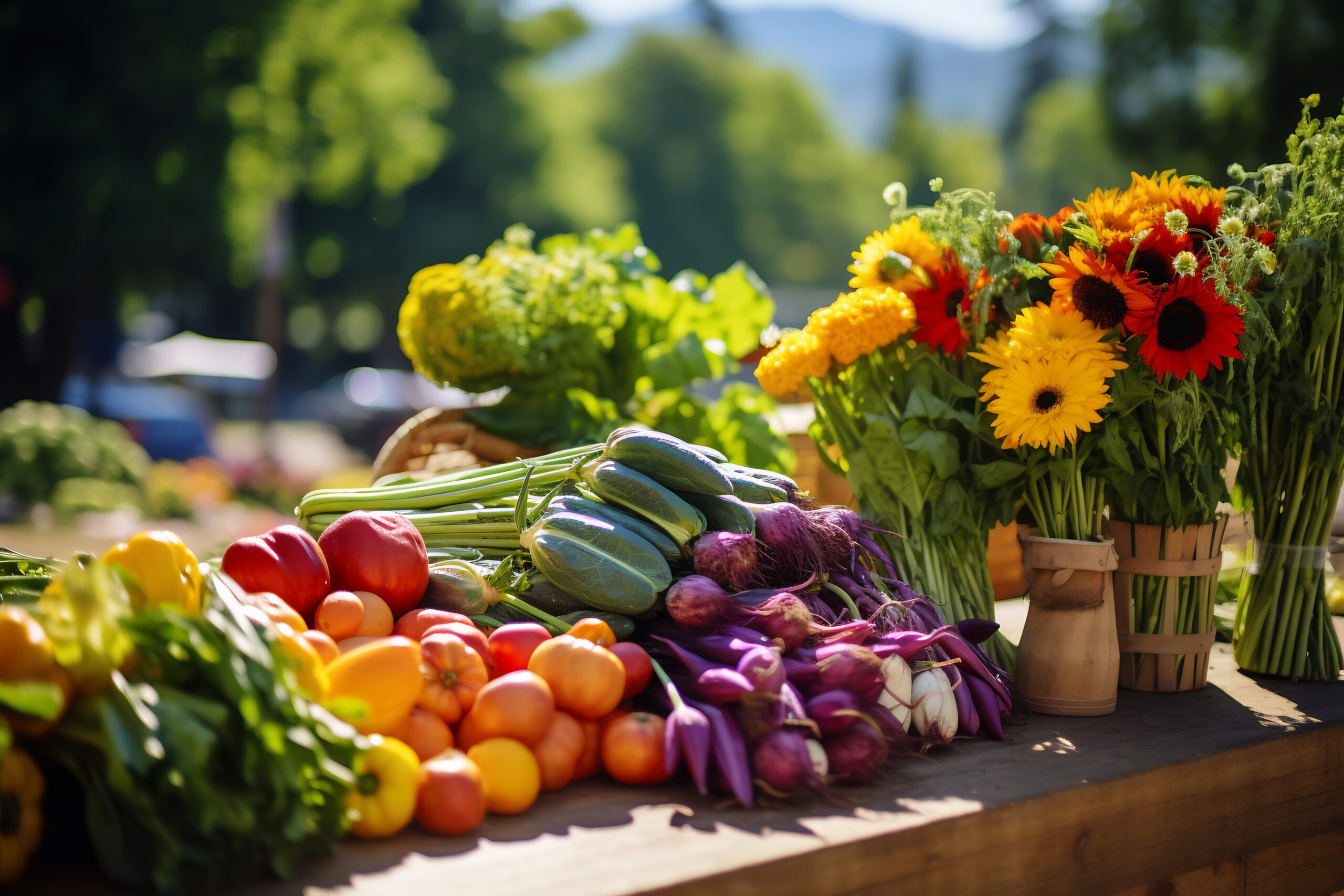Have you ever wondered if paying a little extra for organic produce is actually worth it? Let’s dive in and talk about what makes eating organic such a big deal – and why it’s more than just a trend for the health-conscious.
What Does “Organic” Really Mean?
First off, what are we even talking about when we say “organic”? Simply put, organic foods are grown without the use of synthetic pesticides, herbicides, or genetically modified organisms (GMOs). They’re also grown with strict standards that help protect the environment, ensure healthy soil, and promote biodiversity. Sounds like a win-win, right?
But the benefits go beyond farming methods. Let’s break down why eating organic can have a positive impact on your body, your family, and your planet.
1. Fewer Pesticides Means Fewer Risks
One of the biggest reasons people switch to eating organic is to avoid pesticides. Pesticides are chemicals designed to kill insects, fungi, and other pests that might damage crops. While they’re effective in protecting produce, they can also leave residues on the food we eat. Here’s where it gets a bit uncomfortable: studies show that long-term exposure to some pesticides can lead to serious health issues, including hormone disruption, developmental issues in children, and even cancer (Nicolopoulou-Stamati, 2016).
Let’s look a little closer at what these chemicals might be doing inside our bodies.
Pesticide Effects on Health:
- Hormone Disruption: Certain pesticides are known endocrine disruptors, which means they can mimic or block hormones. This can mess with how our bodies develop and function, affecting everything from growth to reproductive health.
- Cancer Risk: Some pesticides, like glyphosate, are classified as probable carcinogens by the International Agency for Research on Cancer (IARC, 2015). Regular exposure has been linked to higher risks of cancers, such as non-Hodgkin lymphoma.
- Neurological Issues: There’s also concern about the impact of pesticide residues on the brain, particularly in children. Research suggests a connection between pesticide exposure and developmental problems, including ADHD and cognitive delays (Eskenazi, 2007).
When you choose organic, you’re cutting down on these potential risks by selecting foods grown without synthetic pesticides. Plus, it’s not just for us – eating organic also helps protect farm workers and communities near conventional farms from pesticide exposure.
2. Higher Nutrient Density in Organic Foods
Not all veggies are created equal! Studies suggest that organic produce often has higher levels of certain nutrients. A large meta-analysis found that organic fruits and vegetables tend to have higher levels of antioxidants, including vitamins C and E, and lower levels of heavy metals like cadmium (Barański, 2014).
Why does this happen? Organic farming methods, like rotating crops and using natural fertilizers, boost soil health. Healthier soil means healthier plants – and nutrient-packed food for us!
3. Better for the Planet (and the Wallet!)
Choosing organic isn’t just a smart choice for our health – it also benefits the environment. Organic farming practices reduce pollution, conserve water, and increase soil fertility. Since organic farms avoid synthetic chemicals, they don’t contribute to soil degradation or pollute local waterways.
And, while organic foods can be more expensive, there are ways to make it work for your budget. One trick? Eat seasonally! Seasonal produce is fresher, cheaper, and often more nutritious. Not only does eating with the seasons help your wallet, but it also means you’re supporting local farmers and cutting down on the energy used to transport foods.
Seasonal Produce Guide
To help you get started, here’s a handy chart listing organic, seasonal produce by month. It’s a great way to save money and get the best of what’s fresh!
| Month | Seasonal Produce |
|---|---|
| January | Beets, Brussels sprouts, carrots, celery, sweet potatoes |
| February | Broccoli, cabbage, kale, leeks, radishes, winter squash |
| March | Artichokes, asparagus, carrots, chard, parsnips, spinach |
| April | Arugula, beets, cauliflower, lettuce, peas, radishes |
| May | Fennel, green beans, leeks, lettuce, radishes, spinach |
| June | Bell peppers, cucumbers, garlic, lettuce, strawberries |
| July | Blackberries, blueberries, corn, cucumbers, tomatoes |
| August | Bell peppers, corn, eggplant, peaches, tomatoes, zucchini |
| September | Apples, broccoli, cauliflower, grapes, spinach, squash |
| October | Brussels sprouts, cabbage, cranberries, pumpkins, yams |
| November | Broccoli, carrots, onions, parsnips, sweet potatoes |
| December | Beets, Brussels sprouts, kale, leeks, onions, winter squash |
Try keeping this list handy to inspire your grocery shopping and meal planning!
4. Organic Farming Supports Biodiversity
Biodiversity – or the variety of life in an ecosystem – is essential for a healthy planet. Organic farms create a more hospitable environment for beneficial insects, pollinators, and wildlife. Conventional farming often relies on monocropping, where one crop is planted over large areas. While efficient, it’s not great for biodiversity. Organic farms, on the other hand, tend to use crop rotation and cover cropping, creating a more diverse ecosystem.
5. Your Body, Your Choice
When it comes down to it, eating organic is about taking control of what goes into your body. Knowing that you’re eating food grown without harmful pesticides or genetically modified ingredients can give you peace of mind.
Plus, going organic doesn’t mean you have to be all-in right away. Start small. The Environmental Working Group (EWG) has a “Dirty Dozen” list of produce with the most pesticide residue, including apples, strawberries, and spinach. If you’re on a budget, try buying these items organic first and add more as you can.
Making Organic Affordable
Okay, organic can be pricier. But here are a few tricks to make it affordable:
- Buy in Bulk: If you have the space, buying staples like organic oats, rice, and dried beans in bulk can save a lot.
- Shop at Farmers Markets: Locally grown produce is often cheaper (and fresher!) than store-bought. Plus, you’re supporting local farmers.
- Prioritize the Dirty Dozen: As mentioned, the EWG’s Dirty Dozen list is a great way to get the most benefit from your organic buys.
Wrapping Up
Eating organic isn’t just about avoiding pesticides. It’s about making a conscious choice to support our health, our communities, and our planet. From higher nutrient density to fewer pesticides and a boost in biodiversity, there are tons of reasons to go organic. And remember, eating organic doesn’t have to break the bank if you shop seasonally and look for local deals!
So, are you thinking of making the switch to eating organic? Let me know in the comments which organic foods you’re most excited to try – or share your best tips for eating clean without blowing your budget! 🍎🥬🌽
Sources
- Nicolopoulou-Stamati, P., Maipas, S., Kotampasi, C., Stamatis, P., & Hens, L. (2016). Chemical Pesticides and Human Health: The Urgent Need for a New Concept in Agriculture. Frontiers in Public Health, 4, 148.
- International Agency for Research on Cancer (IARC). (2015). Some Organophosphate Insecticides and Herbicides. IARC Monographs on the Evaluation of Carcinogenic Risks to Humans.
- Barański, M., et al. (2014). Higher Antioxidant and Lower Cadmium Concentrations and Lower Incidence of Pesticide Residues in Organically Grown Crops: A Systematic Literature Review and Meta-Analyses. British Journal of Nutrition, 112(5), 794-811.
- Eskenazi, B., et al. (2007). Pesticide Toxicity and the Developing Brain. Environmental Health Perspectives, 115(6), 947-956.



